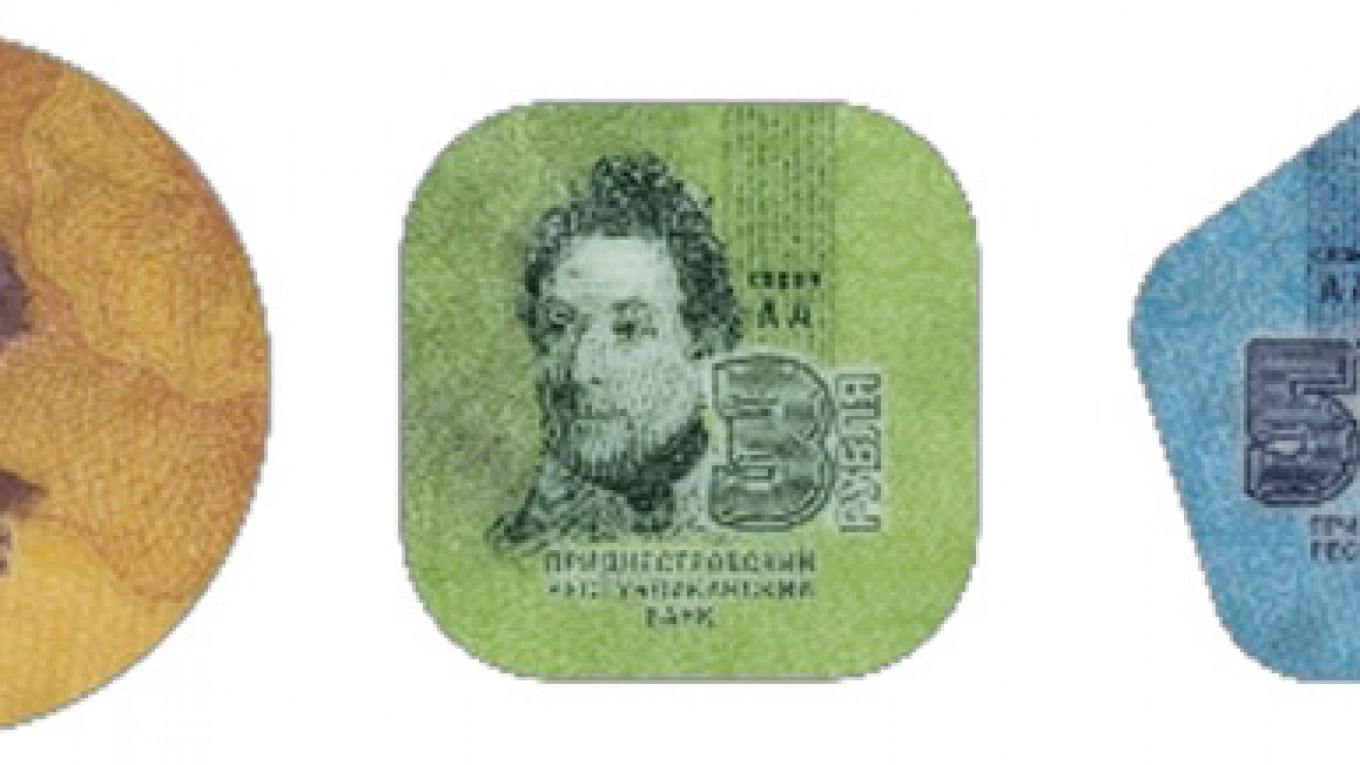The Donetsk People's Republic plans to introduce its own currency, a leader of the self-proclaimed state said, as insurgents defied a peace plan proposed by the Ukrainian government and pledged to continue their secession drive.
The Donetsk separatists had contemplated switching to Russian rubles, but that plan hit a snag as the state has not been recognized by Russia and its economic allies, said Boris Litvinov, speaker for the rebel's parliament, Interfax reported Wednesday.
“There are problems with joining the ruble zone,” Litvinov was quoted as saying. “To join, the republic has to be recognized by such countries as Russia and Belarus.”
Litvinov said insurgents were doing everything in their power to be recognized as soon as possible by Moscow and its allies, Interfax reported.
Until that happens, “we are working on creating our own currency. This process has begun,” Litvinov was quoted as saying. He did not specify what the process entailed.
Ukrainian security officials and the country's ambassador to the United Nations earlier said rebels were pushing for a switch to Russian rubles starting mid-September. Officials said the plan, along with the alleged distribution of Russian passports in separatist regions, were part of Moscow's supposed attempt to create a “frozen conflict” in eastern Ukraine.
Ukrainian President Petro Poroshenko submitted a proposal to parliament this week that would have given separatist regions more autonomy, but kept them in Ukraine. Andrei Purgin, deputy head of the Donetsk People's Republic, dismissed Poroshenko's overtures, saying that rebels were determined to break away.
If the Donetsk People's Republic needs help deciding what its money should look like, it could get some ideas from another pro-Kremlin self-proclaimed state, Transdnestr, which broke away from Moldova in the 1990s.
Last month the self-proclaimed republic of Transdnestr started circulating new coins with innovative designs made from composite materials, according to a statement on the website of the republic's central bank. The one, three, five and 10 Transdnestrian ruble coins come in a range of shapes, including pentagons and hexagons, and carry the portraits of several Russian generals, and Catherine the Great.
A Message from The Moscow Times:
Dear readers,
We are facing unprecedented challenges. Russia's Prosecutor General's Office has designated The Moscow Times as an "undesirable" organization, criminalizing our work and putting our staff at risk of prosecution. This follows our earlier unjust labeling as a "foreign agent."
These actions are direct attempts to silence independent journalism in Russia. The authorities claim our work "discredits the decisions of the Russian leadership." We see things differently: we strive to provide accurate, unbiased reporting on Russia.
We, the journalists of The Moscow Times, refuse to be silenced. But to continue our work, we need your help.
Your support, no matter how small, makes a world of difference. If you can, please support us monthly starting from just $2. It's quick to set up, and every contribution makes a significant impact.
By supporting The Moscow Times, you're defending open, independent journalism in the face of repression. Thank you for standing with us.
Remind me later.


